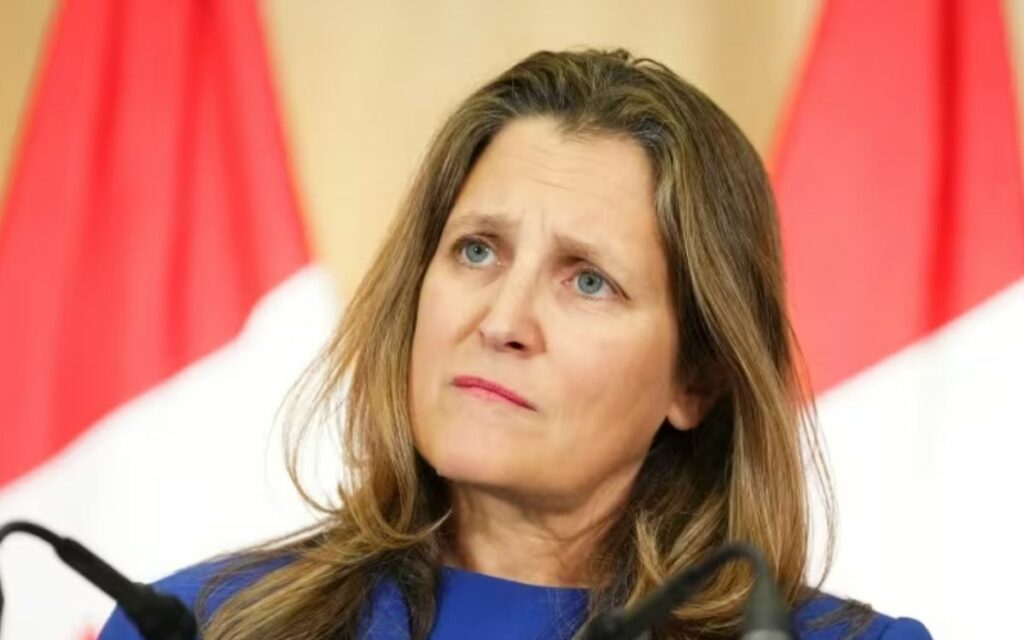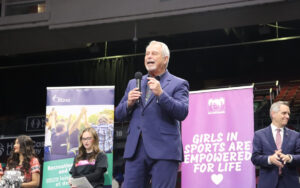
Photo Credit: Sean Kilpatrick/The Canadian Press
As the first snow descends on many cities across Ontario this week, parliamentarians head into the third quarter of the fall session of parliament. In just a couple of weeks, lights will adorn the walkways in the Ottawa precinct and Christmas parties will serve as a welcome distraction from the chaos of the chamber.
To say it’s been a tumultuous couple of months would be an understatement. What should have been an opportunity for policy makers to focus on tough conversations about housing and affordability issues has given way to international and diplomatic disputes, and a crisis of confidence in the Liberal Party as their polling numbers continue to sink.
But there are two big moments left on the docket before the holiday season takes hold that could prove to be consequential.
The first is the introduction of the Fall Economic Statement (FES) which serves as the guidebook for current and upcoming investments made by the federal government. The FES will roll out near the end of November, and is likely to confirm two things: the government is cutting back on spending on the big ticket items that defined their first mandate, and there will be a concerted effort to demonstrate a more fiscally prudent approach to getting the federal books in order.
Conservative Leader Pierre Poilievre will be on the lookout for the tried and true ‘tax and spend’ Liberal agenda to lend credence to the idea that the Prime Minister continues to make life more unaffordable for Canadians. The FES also offers the Conservatives the opportunity to continue to back the Trudeau government into a corner on their failure to remove the carbon tax on home heating for all Canadians.
The NDP have already filed their FES wishlist, and will be looking for the federal government to implement a strategy to protect Canadians from the rising cost of interest rates and inflation, tackle corporate greed and fix gaps in employment insurance.
Based on the priorities of these two opposition parties, the FES is sure to please no one, including members of the government who will have to go out and sell these measures at the doorstep.
Then we’ve got the pharmacare dilemma. To meet the conditions of the Liberal-NDP supply and confidence agreement, the Trudeau government has until the end of the year to introduce pharmacare legislation. But with limited spending powers, the government is going to have to figure out how to fulfill their obligations for the kind of single-payer system the NDP are advocating for without breaking the bank.
It’s an issue that will no doubt cause headaches for both parties involved. The Liberals can’t signal they are being more fiscally prudent while funding an outrageously expensive program during a cost-of-living crisis. On the other hand, Jagmeet Singh has been very clear that he wants to avoid an election, and has refused to say whether he is willing to withdraw his support if pharmacare demands are not met.
The Liberals have been steadfast in their commitment to hold off on calling an election as long as the supply and confidence agreement remains intact. And yet, the enemies are at the gate and the writing seems to be on the wall. Governing is one thing, but negotiating with parties who are self-interested in their own priorities is a whole other ball game.
The next few weeks will come and go, and with it the holiday season. But the parliamentary break is unlikely to bring much relief for the Trudeau Liberals who may be thinking that an election looks pretty good compared to another year of bartering away what remains of their principles.

Josie Sabatino is a Senior Consultant at Summa Strategies, focused on providing strategic insight and helping clients meet their objectives in an ever changing and complex political and regulatory environment. Prior to joining Summa, Josie spent nearly a decade in political communications and most recently served as the Director of Communications to the Hon. Erin O’Toole, former Leader of the Official Opposition.


















